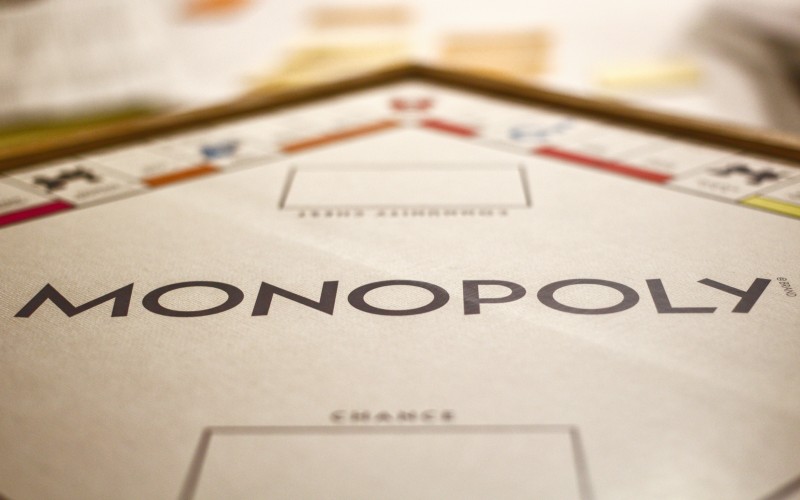Monopoly has become such a massive part of popular culture that many terms and colloquialisms from the game have broken into the mainstream, it’s even inspired a ridiculous amount of themed spin offs. The same can be said for the game’s mechanics. Although Monopoly doesn’t carry any financial risk, its underlying element hones in on and champions financial literacy, bankroll management, and of course risk management.
Early days of Monopoly and its breakthrough
Charles Darrow released the game in its more popular, modern mainstream form in 1935 but the idea dates back over 30 years before this to a game by Lizzie Magie called The Landlord’s Game. This game was created to highlight that rewarding individuals within a market, rather than the business at the top and creating financial imbalance, was actually the better way to manage an economy.
During the early 20th century and the Roaring Twenties, the game didn’t have much of a mainstream audience. However, somewhat ironically, after the Great Depression, when the gaming juggernaut Parker Bros picked up and repackaged the game, it became an international sensation. That in itself is a real-life economics lesson and an insight into how capitalistic business practices often work.
Adapting to markets and changing trends
Monopoly might have taken the world by storm throughout the mid-20th century, but a large factor in its continued success comes from its ability to adapt to new trends and move with the times. It’s no secret that the casino gaming world has come on leaps and bounds over the last 20 or so years, and Monopoly has ridden this wave, passed Go and collected its $200.
The accomplishments of casino gaming have combined all the biggest innovations since the turn of this century, like smartphone adoption, mobile app rollout, and capturing the essence of a global market. This means that casinos are now competing against international competition to develop games that can bolster their brand.
Slot gaming companies stopped at nothing to find new ideas that could bridge the gap between a mainstream audience and their newest titles, which is why the rise of Monopoly-based slot games has proven to be such a hit over the last couple of decades. Monopoly slots cover various jackpots and gaming mechanics; they don’t just focus on one type of game.
The brand is prevalent not just in slot gaming but in the broader context of niche casino games, including spin-the-wheel style gaming, and no other board game has been able to enter this competitive world of iGaming with quite the same conviction. A new online casino will often try to blend together games with a proven audience, like Monopoly-based slots and some of their newer ideas. Still, the fact its maintained such a firm place in the iGaming world over the last 20 years shows just how popular Monopoly and its spin-off ideas actually are.
Comparison to real-life economics
Monopoly teaches us a lot about real-life economics, including
- Investing wisely often trumps investing with large amounts of capital. Compound interest can be where the actual value of any economic investment is earned. This is true in Monopoly, just as it is in reality.
- It teaches us the value of land in popular places.
- Everyone starts with the same amount of money, and the game’s purpose is for the winner to emerge out of all the players who know how to best manage a budget. (We know this isn’t the same as reality, as some people are born with much more wealth than others). Still, the initial purpose of Monopoly was to teach people how the concept of sharing wealth and assets becomes more beneficial.
- Don’t go all in on one investment. Diversify an approach to investing so that one type of asset or investment can offset against any market downturns.
Business lessons from Monopoly
Just as players can learn some harsh economic truths in Monopoly, the same applies to those looking to grasp the business lessons in the game. Although businesses are becoming increasingly digitised, with prominent banks in the UK now not having any physical branches but being granted trading licenses to operate solely online, some of the business lessons found in Monopoly are slightly dated—although plenty of examples remain as relevant as ever.
Patience
If we reduce Monopoly to its bare bones, to win the game, you need to finish it with more money than anybody else. To do this, it’s all about patience, investing wisely, and understanding that the most valuable asset isn’t always the one that costs the most. One of the most valuable characteristics of any businessperson is patience, knowing when to buy and when to play it out, the opportunity presents itself with better value further down the line.
Cash is king
The rise of digital assets might finally be testing this adage, but Monopoly is the best crossover example highlighting the importance of having a cash reserve. We know juggling a business is difficult, especially if you’re just starting out. Many businesses will operate at a deficit to get their product or services off the ground. Still, if you adopt an aggressive approach in Monopoly and go around hoovering up everybody’s properties, you’ll cash-strap yourself (and maybe end up in jail). In contrast, those who are savvier and wait for the right business opportunities while keeping some cash to hand, are often the most demanding players to beat in Monopoly.
Final thoughts
While there is definitely some crossover between real-life economics and business, and it is one of the most famous board games ever created, it is only a board game. Real-life business involves much more nuance and considerable risks, much more is at stake, without stating the obvious. It requires a different type of grit, guile, and skill to succeed in the business world.
Of course, there are similarities, and if you do not know the first thing about how businesses and capitalism operate, having a few games of Monopoly might open your eyes. Given how the world is today, especially as it becomes more digital, stark contrasts keep economics, real-life business, and Monopoly as mutually exclusive entities. However, seeing the areas where an overlap exists is still intriguing.


